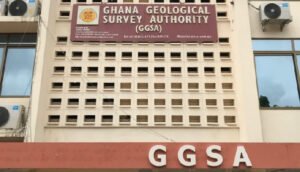
Mining – regular or informal – is becoming an abiding vocation and economic attraction, with individuals, especially the youth, in communities and corporate organisations getting more and more interested.
While the records have shown that corporate entities have been modestly responsible in conducting their operations, our long term national interests have not been adequately protected.
Those interests include, of course, our natural resources like water bodies, forests reserves and arable lands. The consequence in terms of threat to water supply and agriculture has been huge, denuding life expectations, livelihoods and our future heritage.
In spite of the huge numbers of non-governmental organisations or civil society groups engaged in advocacy against the excesses of these companies, the risks and losses far outweigh the national benefit.
Worsening
With the entry onto the turf of illegal miners, particularly in the last decade and half, the risk element and scale of degradation and economic disadvantage to the nation have become deplorable. At a time when the whole global community was fighting to protect wildlife and nature, Ghana was cited as worst case scapegoat in degradation – with threats to our cocoa sector.
That is aside of the degradation that is wasting away our beaches and marine resources. Thank God, we all agree that some sanitisation effort is needed to redeem the sector and even redevelop it.
We therefore agree with the Minister of Lands and Natural Resources for mooting the idea of the establishment of a reclamation fund to help recover lost ground in the sector and sustain the ecology, as we transform agriculture and mining to improve – not degrade – our rural economies.
Apeati tragedy
Last week, the nation awoke to a spectre of gore and desolation when a truck carrying explosives to a mining point got caught in an accident, with the resulting blast causing huge jeopardy to a whole community.
Dozens of lives were lost and equally dozens were injured as economic activity ground to a halt.
Police have since been leading investigations, as the conversations sometimes get mired in the politics of blame, instead of a consensus on the way forward.
Holistic transformation
It is in this vein that we also suggest that the proposed reclamation fund should have actors in our regular mining companies and our nascent community mining cooperatives committing themselves, by statute, to health, agriculture and education programmes to support target communities.
If we believe that the sector is strategic, we should also be willing to ensure that we make maximum gains to sustain basic development in such areas in creating jobs and reducing migration.
While we support efforts on the part of government to rebuild the community from public and charity funds, it is also imperative that existing companies in the sector prove that they are true partners capable of helping bring development by running tangible amenities side by side their economic interests.
Total policy
As police wind down on their investigations and government sends engineers, workers and logistics into the community, we must not delay in putting together that framework that should protect our natural reserves and also minimise, if not eliminate, the incidence of such tragedies recurring in our mining communities.
Over a century of mining activity in Ghana should provide us enough lessons to review policy in the sector. Our legislature, civil society and the experts must come together in giving us a better mining environment.







